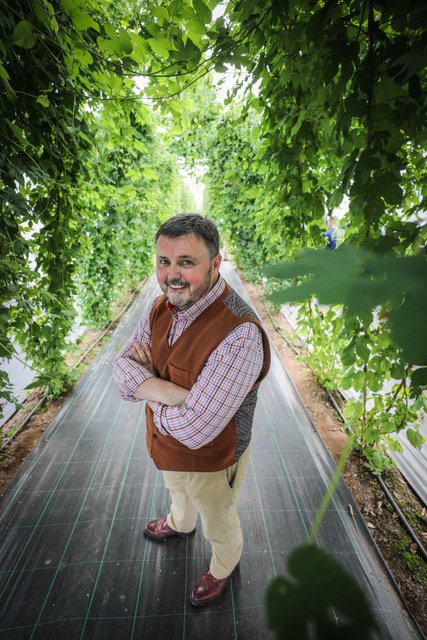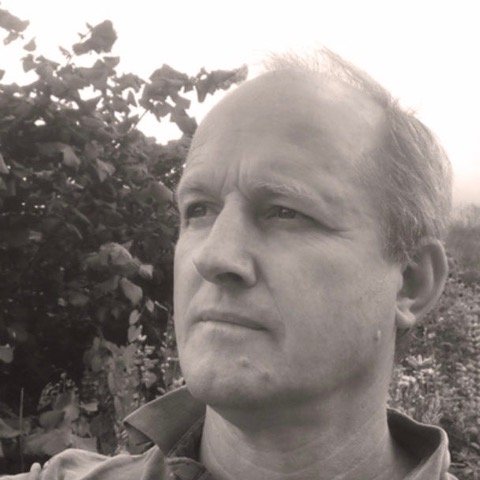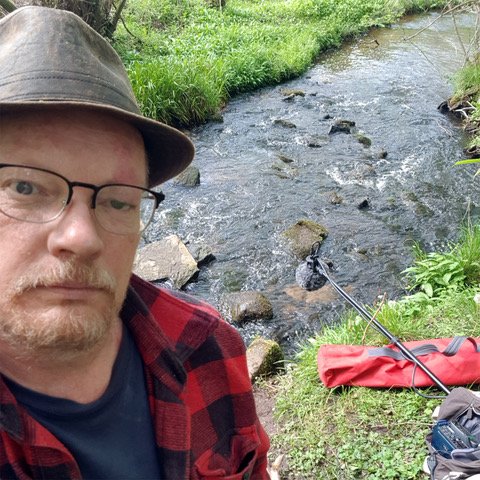Land Conversations / Imagining Bioproducts
Imagining Bioproducts and Reimagining Food
In Scotland we urgently need to change the way our natural and cultural resources are produced and consumed if we are to tackle climate change and reduce environmental impacts. Developing a bioeconomy using renewable biological resources from the land and the sea – including crops, forests, fish, animals and microorganisms - to produce food, materials and energy will be a key part of this.
A bioeconomy would bring new industries and jobs that would move Scotland to a more sustainable future. But it will need to be carefully managed, in ways that avoid resource depletion and environmental degradation. This double bill will look at the opportunities for bioproducts and the development of a much more nutritious food industry. A bioeconomy would enhance biodiversity, restore soil fertility and air and water quality while improving people's health and wellbeing and creating new jobs.
The two events will cover questions including: does Scotland produce enough food, fibre and timber for our needs, or are crucial commodities imported? Is the land managed sustainably or is it degrading? Do people and communities have a say in how the land around them is managed and what it produces? And does reliance on imports lead to ecological destruction in other parts of the world?
SEDA Land invites you to join a panel of experts who are committed to regeneration, innovation and self-sufficiency who will explore the range of positive developments which are either already underway or could be applied in Scotland. They will discuss the best ways of using land in a way that will create sustainable industries that work with rural communities, giving participants the opportunity to discover new and exciting possibilities from people who are already doing it.
First event - Imagining Bioproducts
Monday 13 June 2022, 2-4pm
This is a hybrid event, live in Huntly and online.
Because they provide an alternative to petroleum-based products, reducing dependence on fossil fuels, bioproducts are more important than they have ever been, and science is rapidly developing new bioproducts for a wide range of innovative uses. For energy, biomaterials can generate fuels for heat or power and it is possible to manufacture biofoams, biorubber, and biocomposites from plant products for use in construction, pharmaceuticals, soap, cosmetics, and resins for industrial use. This SEDA Land Conversation will examine the current and potential range of bioproducts which are already, or could potentially be, produced in Scotland, their environmental benefits and risks, the value chains they bring, and the options for increasing the quantity of bioproducts produced from the land without compromising food security. Science and technology is evolving rapidly, with scope to enable communities and farmers to diversify into new products with the associated benefits to the local economy and the environment.
For information on the second event: Reimagining Food
SPEAKERS
CHAIR
Gail Halvorsen,
Chair SEDA Land
After working for Michael Hopkins and Partners in London Gail established Halvorsen Architects in 1994, moving to Edinburgh in 1999, where she specialises in ecological design for residential and nursery school buildings. Gail was chair of ECAN (Edinburgh Chartered Architects Network) from 2001-3 and on the board of Gorebridge Community Development Trust for 10 years, being chair from 2014-16, where she project managed the £2.5m community centre, Gorebridge Beacon. She was a Civic Trust Award assessor 1997–2011 and has run environmental projects with primary schools. Gail is an events organiser for the Scottish Ecological Design Association and after organising A New Vision for Land Use in Scotland: Six Conversations in Spring 2021 established SEDA Land.
SPEAKER
Derek Stewart
Director of the Advanced Plant Growth Centre
Derek is the Director of the Advanced Plant Growth Centre, a £27m regional development initiative at the James Hutton Institute (JHI), focussing on precision technologies for plant/crop production. He also holds the chair of Plant and Food Chemistry at Heriot Watt University. From a background in the UK pharmaceutical industry as a drug designer, he has pursued a >30 year career in crop production, raw material composition and its relation to product quality, functionality, bioactivity and utility. Prof Stewart has significant experience of science discovery, translation and commercialisation projects at the international level and currently leads the JHI science in the area of transformative crop production systems for food and non-food applications. Prof Stewart is lead on projects focussing on vertical farming, crop quality, nutritive value and functionality from a range of sources, as well as developing and applying the circular economy concept to agricultural biomass. He has has published over 200 refereed papers and over his career has been involved in projects with a cumulative value of ~£300m.
panel
Neil Sutherland
MAKAR Architects
Neil is an award winning, ecologically driven architect who runs his own construction company, MAKAR Ltd., South of Inverness. MAKAR is a pioneering company that designs and builds ecological homes, offices and community buildings using off-site construction. Neil is passionate about building healthy, environmentally friendly, low energy buildings using locally grown timber. Neil has experience in timber and land management and teaches at the Scott Sutherland School of Architecture, Aberdeen.
Gary Newman
Woodknowledge Wales
Gary is the Chief Executive of Woodknowledge Wales (www.woodknowledgewales.co.uk), which is a for-public-good member organisation focused upon the transformation of Wales into a high value forest nation. Gary is also co-founder and Chair of the Alliance for Sustainable Building Products (www.asbp.org.uk) which is a materially agnostic membership alliance that champions sustainable, healthy and circular construction products and business models. Gary is a construction engineer by training and early career. After completing a wood science masters, Gary spent a formative few years at the at the BioComposites Centre in Bangor as a researcher where he became inspired by the technical possibilities of plant-based materials. In 1995, armed with this knowledge and the naivety of youth, Gary established a fully integrated hemp and flax processing plant in North Wales and contracted the growing of fibre crops all over England and Wales. Over the following 20 years Gary was responsible for developing and manufacturing a range of bio-products including horticultural and automotive nonwovens, hemp particleboard and hemp fibre insulation.
Dr Douglas McKenzie
Xanthella Ltd.
Originally from Glasgow, Douglas obtained has a BSc in Zoologyand a PhD in Marine Zoology. After post-docs in Leeds and Sheffield he returned to Scotland as the first Research Fellow at Scottish Association for Marine Science in 1989. He founded the Marine Biotechnology Group at SAMS. Douglas has 25 years experience managing applied research projects. In 1999 he founded his first company, Integrin which won a number of awards for innovation. Douglas was a member of the Scottish Biotech Steering Group (2000-2005) and adviser to the Norwegian government on Fuge biotechnology programme. He founded Xanthella Ltd in 2009 to develop systems for industrial photobiology. Based in Oban, Xanthella’s special expertise is in the use of LED lighting technologies to influence productivity in commercially important cultures of algae and plant cells. Douglas chairs the Industrial Biotechnology Innovation Centre (IBioIC) Commercial Advisory Board and coordinated the Scottish Government funded £2M ASLEE/ENBIO project which aimed to demonstrate the value of using algal production as part of a circular economy approach to provide a new industry for remote rural areas. This award-winning project – a world first - aimed to overcome the problems of electrical grid constraint in rural areas and utilisation of coproducts from rural industries (such as whisky production) that would otherwise become expensive waste. Douglas co-founded Phyco-F (Phycofoods Ltd) in 2020 to further develop and commercialise the ideas and technology developed in the ASLEE/ENBIO projects. Phyco-F recently completed a feasibility study for BEIS to develop a demonstration project to integrate a 50,000l microalgal production unit with a distillery.
Jane Shields
Living Water Ecosystems Ltd
Jane is the founder and co-director of Living Water Ecosystems Ltd, trading as Living Water since 1989 and is involved in all aspects of Living Water's services from initial client contact, project management, technical assessments, integrated strategies catchment and watershed management, design, construction, planting through to commissioning, ecological mitigation, habitat creation, increasing biodiversity and landscaping. Leading Research and Product Development, she also shares responsibility for finances and operations. Jane has developed techniques for attenuating and treating contaminated surface water and effluent and wastes with high organic loading (e.g. from distilleries, breweries, wineries and farms) and with complex petrochemicals (e.g. oil terminals, highway depots, landfills and factories). She developed bioremediation and composting processes that transform highly concentrated hydrocarbon waste, sludges and contaminated soil into a compost meeting the PAS 100 and agricultural grade A standards. She is currently developing bioremediation and vermiculture processes to transform high volume digestates from the AD industry and other wastes with high organic loadings and rich in ammoniacal nitrogeninto a peat free alternative for the horticulture and garden centre markets. Jane has a PhD in Marine Biology and Toxicology from Heriot-Watt University in Edinburgh and has developed the Rhizoid Regeneration Technique which enables a reliable and fast method of assessing estuarine and marine water quality and their impacts on algae at the bottom of the food web. Jane is now working on using marine algae for carbon capture and treatment.
Dr Ian Archer
Industrial Biotechnology Innovation Centre
Ian joined IBioIC as Technical Director in August 2015. Ian is tasked with shaping the IBioIC's strategy and implanting the business plan for the centre. Specifically, he identifies mechanisms, resources, and techniques for solving industry problems through biotechnology. Having received his degree and PhD in Chemistry from Imperial College, London, Ian spent six years working as a Work Group Leader in Process Technology with Zeneca (latterly Avecia) in Grangemouth, Scotland. With a firm background in synthetic organic chemistry and chemical process development, in 2004, Ian joined Ingenza Ltd. as Head of Process Development where he was responsible for all aspects of bioprocess development and developed his expertise at the interface of molecular biology, microbiology and bioprocess development.
Sophie Cooke
poet, novelist, and short story writer
Sophie is a poet, novelist, and short story writer. She produces filmpoems on environmental and social themes. Her broader poetry covers issues ranging from mythology to genetics. She won the Genomics Forum Poetry Prize and is published in various magazines. Sophie’s novels are set in rural Scotland. Her short stories (including for BBC Radio) are contemporary and historical. She grew up in the Trossachs and now lives in Edinburgh, where she is involved in helping care for local green space. She teaches creative writing with the Open University.
Tom Lyne
Composer and bassist
Tom, originally from Edmonton, Canada, is a sound designer, composer, and bassist/musician located in Pathhead, Midlothian. Having been a professional jazz bassist and composer for more than 35 years, Tom also works as a recording engineer, music producer and a sound designer for film and video. In spring 2020, Tom completed a MSc in Sound Design at Napier University in Edinburgh and wrote a masters dissertation investigating the use of sound to enhance narrative. This interest led to work documenting natural locations and exploring narratives found within our local environments. In December 2020, Tom was awarded Creative Scotland funding to develop these ideas further using immersive Ambisonic field recording equipment in a project called ‘Surrounded by Midlothian’. These sound effects recordings were then used to produce experimental and electronic music that also includes experimental instruments like aeolian harps, metal plates, hydrophones, and a selection of more conventional instruments.
Tarun Nayar
musician and composer
Canada-based Tarun Nayar uses a different approach to make music that sounds quite unlike anything else. With background in Indian classical music and biology he brings together home-built modular synthesizers and other analog equipment to improvise with the natural vibrations of a certain place and time – via plant bioelectricity, latent electromagnetic radiation, and even the earth's resonant hum. Modern Biology is Tarun’s new project that brings his passions together in an ambient project that is deeply contextual. His latest hauntingly beautiful single Mushroom Dance finds Tarun in the early spring woods feeding the bioelectricity generated by a red-belted conk mushroom to his synths to come up with beautiful unorthodox melodic lines.
ARTISTIC CONTRIBUTIONS
Each of the conversations will include artistic contributions, from poets, musicians and video artists, bringing a cultural perspective to each event. Each of their pieces will be a different take on the changing rural landscape around them, the climate emergency and the unstable connections between the human and the natural worlds. Some will be provocative about the way forward, some reflective of the current situation, and others just a joyous celebration of nature.
The contributors are:
Tarun Nayar, Modern Biology, musician
Tom Lyne, composer and bassist
Sophie Cooke, poet and novelist
Pupil, The Gordon Schools, reading













